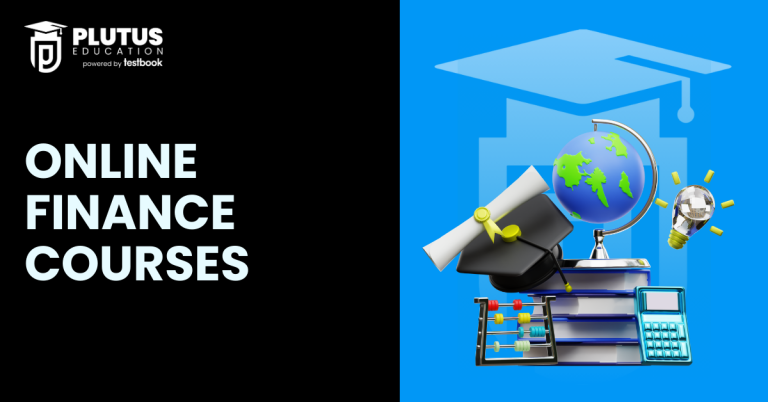An online finance course is a distance learning program that teaches individuals about various aspects of finance, such as financial management, investment, and accounting. These courses can range from introductory-level to advanced certifications and are designed to be flexible and accessible to learners of all levels. Learning finance online helps students, job seekers, and professionals improve their skills from home. Online finance courses teach everything from basics to advanced financial management. These courses suit all levels of learners. Students understand money, budgeting, accounting, investing, and more. Online finance courses give flexibility, affordable learning, and certificates for career growth.
Best Platforms Offering Online Finance Courses
Many trusted platforms provide finance courses online. These platforms include big names like Harvard, Udemy, Coursera, edX, and LinkedIn Learning. Each one offers top-quality lessons, expert trainers, and flexible schedules. People can pick courses matching their job level, study needs, or goals.
Plutus Education Online Finance Courses
Plutus Education provides online finance courses that are really applicable and cheap for competitive examination aspirants and beginners willing to lay strong finance foundations. The syllabus covers important topics like banking basics, budgeting, investment planning, and personal finance management. With well-experienced faculty, virtual classes, and study material available for download, learners learn practical skills along with exam-level knowledge.
Harvard Online Finance Courses
Harvard University offers online learning for global students. Harvard’s online finance courses teach financial analysis, valuation, and finance leadership. One course, Leading with Finance, helps learners understand real-life financial decisions. Harvard offers real-world cases, easy schedules, and a strong certificate. These courses fit both working people and beginners. People can learn part-time without leaving their jobs. The school allows students to access lectures anytime. Harvard’s name also adds value to a resume. Their finance course explains money flow, business growth, and how companies use finance.
Udemy Finance Courses
Udemy offers simple, low-cost Udemy finance courses. These include introductory finance courses online, advanced finance courses, and topics like Excel for finance, personal budgeting, and stock investing. Students watch recorded videos. Instructors give worksheets, quizzes, and project tasks. Udemy has no fixed schedule. Learners move at their own pace. Certificates from Udemy help people get better job roles. Courses like Financial Analyst Masterclass or The Complete Financial Analyst Course are popular. Students can start with a beginner finance course online and later switch to more complex topics.
Other Popular Platforms
| Platform | Course Type | Certificate Provided |
| Coursera | University-level courses | Yes |
| edX | MBA-level courses & diplomas | Yes |
| LinkedIn Learning | Short video lessons | Yes |
| Skillshare | Practical finance & business tips | No |
| FutureLearn | UK-based online education | Yes |
Free and Paid Online Courses for Finance Professionals
Finance learners can pick both free finance courses online and paid ones. Each type suits different goals. Free courses help learners try out topics without paying. Paid courses give complete learning, expert help, and a strong certificate.
Free Finance Courses Online
Many universities and sites like Coursera, edX, and Alison offer free finance courses online. These include budgeting, corporate finance, personal finance, and financial planning. They help people at zero cost. Some courses offer free lessons but charge for certificates. These courses include strong video lectures, reading material, and quizzes. Students use free finance learning to upgrade their knowledge before choosing a fully paid path. Examples include:
- Finance for Everyone by the University of Michigan on edX
- Introduction to Financial Markets by Yale on Coursera
Paid Online Finance Certification
For those looking for job upgrades, an online finance certification helps. Paid finance courses give structure, deadlines, personal feedback, and industry-recognized certificates. Finance courses with certificates boost resumes and provide an edge in job interviews. These certifications suit both freshers and experts. Paid programs cover short finance courses, professional finance courses, and job-specific ones, like an investment finance course online. Some top-rated paid certifications include:
- Certified Financial Planner (CFP)
- Chartered Financial Analyst (CFA)
- Certificate in Corporate Finance from Columbia
Paid courses give deep content and personal support. Some also offer real-world case studies, which help in practical job learning.
Certifications That Boost Your Finance Career
A good certificate shows employers your skills. Many online financial planning courses and corporate finance courses give valid certificates. These certificates help people get better jobs and higher salaries.
Types of Finance Certifications
There are many certifications in online learning. These include:
- Personal Finance Certificates— Great for families and individuals. They teach saving, budgeting, debt management, and investment.
- Corporate Finance Certificates—These suit bankers, analysts, or CFOs. They teach capital structuring, budgeting, and financial statements.
- Investment Finance Certificate – This course helps understand stock markets, portfolios, and mutual funds.
- Advanced Finance Courses include financial modeling, risk management, and international finance. They suit professionals in top roles.
Top Accredited Finance Courses Online
An accredited course is one accepted by finance bodies or universities. These courses prove a person’s skills. Accredited finance courses online follow a standard system. Many programs like Plutus Education Online Finance Courses, Coursera’s Wharton Finance, edX’s Columbia courses, and LinkedIn certifications are widely trusted. Professionals with these certifications often get preference in banking, accounting, and investment companies. They show employers that the learner can apply finance ideas in real life.
How to Choose Right Finance Course Online?
Choosing a good course is essential. Learners must match the course with their career goals, time, and skills. Some people want online courses for finance professionals. Others may look for personal finance courses online.
Factors to Consider Before Choosing
To select the best course, look at these points:
- Level of Course: If you’re just starting, choose a beginner finance course online. Pick advanced finance courses if you are already working in finance.
- Duration: Some courses run for weeks. Some go for months. Pick what suits your time.
- Course Provider: Big names like Harvard or Coursera add weight to your profile.
- Certificate: Pick a course that gives a certificate. This helps in job searches.
- Course Content: Look at topics like financial management courses, online finance degrees, or short finance courses. Make sure they teach real-world tools.
Short Finance Courses for Quick Learning
Some learners need quick updates. They choose short finance courses. These run for 2 to 6 weeks. They help in interviews, projects, or skill upgrades. Even short courses give certificates and basic knowledge. People also choose an introductory finance course online to understand terms like interest, loans, and returns. Later, they can learn deep finance topics.
Who Should Take Online Finance Courses?
Online finance courses are not just for finance graduates or MBA students. They benefit a wide range of learners. For example, a small business owner may enroll to manage cash flow better. An engineering student preparing for a job in analytics can take a course in corporate finance to understand financial KPIs. Working professionals in unrelated fields like marketing or operations take finance courses online to build cross-functional knowledge and enhance decision-making skills.
People switching careers also find these courses useful. Suppose a teacher wants to move into educational finance or a lawyer seeks to enter compliance roles in banks—online finance courses offer flexible, low-risk learning paths to explore these new fields. Homemakers who manage household expenses can take personal finance courses online to plan savings, reduce debts, and grow investments. These courses support both career growth and daily life improvements.
What is the Duration of Online Finance Courses?
The duration of online finance courses varies widely, depending on the depth and target audience. Short-term courses usually range from two to four weeks. These programs offer quick learning in focused areas like budgeting, cash flow, or debt management. They are ideal for someone looking for fast results or specific skill development.
Mid-length courses run for one to three months and cover wider topics like corporate finance, personal wealth planning, or financial analysis. These suit job seekers or professionals aiming to advance in finance roles. They balance theory and practice through assignments, case studies, and peer interactions.
Long-term programs, such as a diploma or an online finance degree, may last six months to over a year. These comprehensive courses include a complete curriculum equivalent to college-level learning, covering accounting, investment, taxation, international finance, and laws. They are often offered by accredited institutions like the University of London or Penn State and include assessments, capstone projects, and certificates that carry more weight with employers.
What is the Career Scope of Online Finance Courses?
Many professional finance courses today come with career support services. These services include resume building, LinkedIn optimization, and job interview practice. They are handy for freshers entering the workforce or professionals switching industries. Leading platforms like Testbook, Simplilearn, and Coursera often partner with companies to provide job assistance after course completion.
Some advanced finance programs offer capstone projects that simulate real company scenarios. Learners are asked to solve a finance problem, like making a cost-cutting plan or evaluating a stock portfolio, and present the solution. These projects add significant value to resumes and help during interviews.
In addition to career services, a few top-tier courses offer internship opportunities. These internships are either virtual or partnered with banks and finance firms. For instance, some online financial planning courses through Coursera and edX come with mentor-led projects and internships as part of the course flow. This hands-on learning is a big plus for learners looking to apply finance theories in practical situations.
Employers appreciate candidates who have not just certificates but also experience. Courses that offer both learning and job preparation give learners a massive advantage in the competitive finance job market.
Online Finance Courses FAQs
1. What are online finance courses?
Online finance courses are digital programs that teach topics like budgeting, investing, financial planning, or corporate finance using videos, quizzes, and real-world tasks. Learners can access them anytime from anywhere.
2. Which platform gives the best finance courses online?
Coursera, Udemy, edX, and Harvard Online provide the best finance courses. These offer deep learning and certificates from top institutions.
3. Can beginners take an introductory finance course online?
Yes. Many sites provide beginner finance courses online. These teach core concepts in simple language. They suit school students, freshers, or job seekers.
4. Is there a good investment finance course online?
Yes. Websites like Coursera and Udemy offer online investment finance courses. These include stocks, mutual funds, portfolio management, and risk handling.
5. Do personal finance courses online offer certificates?
Yes. Many personal finance courses online give certificates. These help people handle money, savings, and family budgets better.


